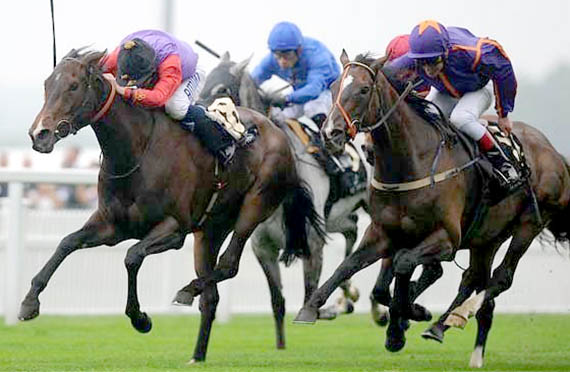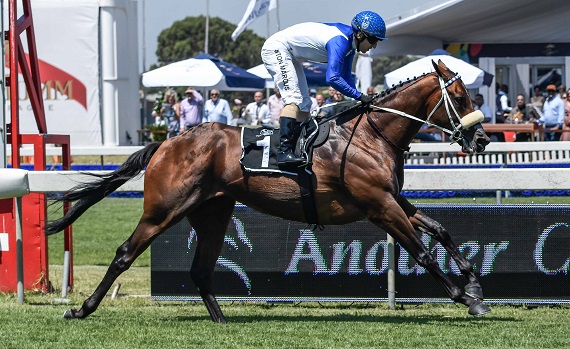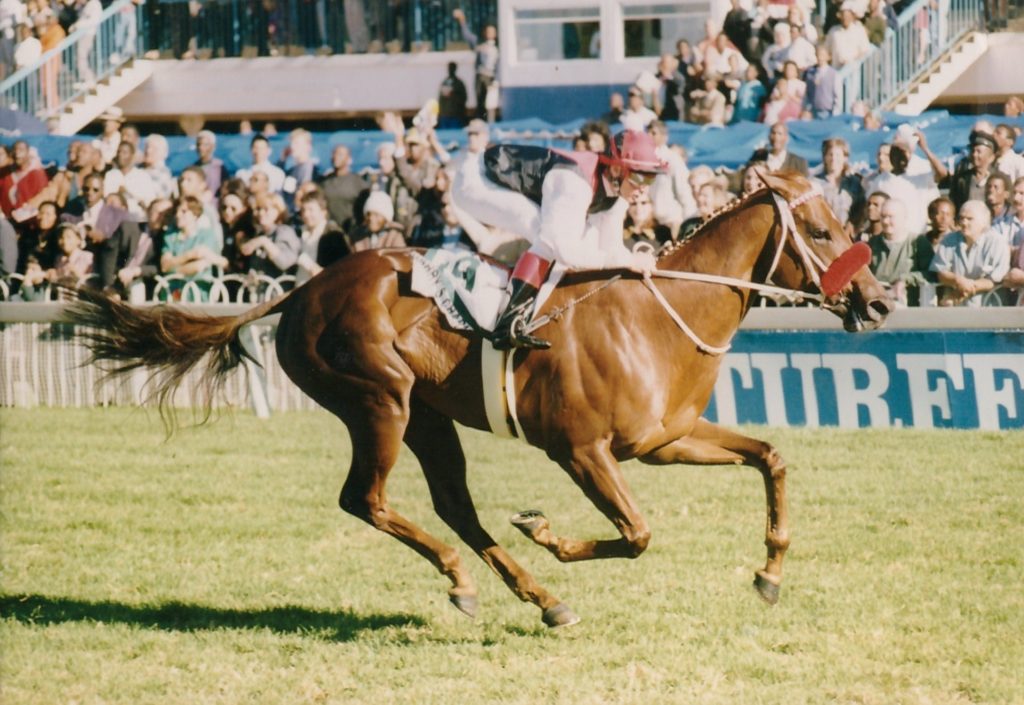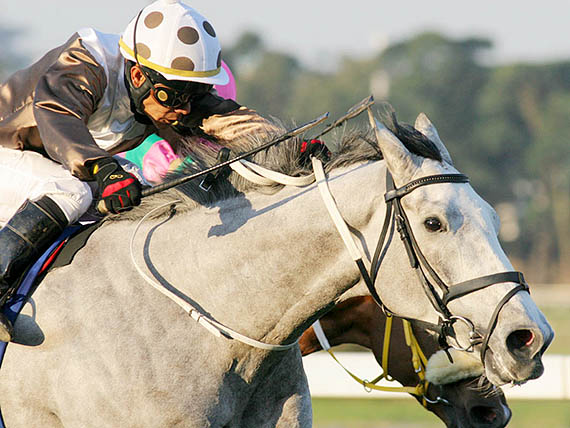Ability Ratings (AR) in our publications have been universally adjusted this week, to allow comparisons between crops over an extended period of years.
The adjustment also provides an opportunity to bring Ability Ratings (AR) in line with English rating of Raceform/Racing Post (RPR).
So now an English horse rated (for example) RPR 99 will be more or less the same as one of our horses rated AR 99.

Ability Ratings (AR) show how good a horse is, or isn’t.
The ratings follow a normal distribution, graphically represented in a bell curve for a population of horses of the same sex. AR shows by how much a horse’s AR differs from that of the average horse of the same sex in that population.
AR is expressed in a number representing weight (pounds in our case, as well as in UK).
The daily calculations of AR are based on results of races, in terms of weight carried in the race and beaten lengths at the finish.
In addition, there is a weight-for-age (WFA) component, to compensate for immaturity of younger horses.
WFA is expressed in a number representing a weight allowance (pounds), depending on the age of a horse, the distance of a race, and the time of year.
WFA is not a real number, but an approximation of how the average horse matures over time.
This is shown in the WFA table. Different racing bodies use variations of this table.
WFA has an influence on the overall level of ratings in a population.

The most widely used WFA table (internationally) causes an automatic rise in the overall level of ratings over time.
We experimented with WFA during the Nineties over an extended period of time.
By adjusting the numbers, we found it was possible to slow the increase and even reverse it.
Our final (adjusted) WFA table, for our own use only, was close to our objective of keeping the ratings at the same level from year to year.
It had an effect of reducing AR by about half a pound per year, which on predicting outcome of races had little effect in the short term.
However, half a pound per year translates into 5lb in a decade, and 10lb in two decades, from the Nineties to today.
This explains why the overall level of our yearly ratings shows a marked drop compared to the Nineties.
Because little of the influence of the drop was felt in the short term, we did not make corrections over the 20 year period of time – but there is reason to want to do so now.
The adjustment is important in the calculation of our Power Of Ratings, the stallion statistic which rates sires using their offspring’s AR, going back in time.
Power Of Ratings can be found on the main page of our website, as well as on individual stallion pages on the website, and in the yearly Sires publication.
The universal adjustment gives an opportunity, too, to align our AR with international ratings, notably the RPR of Racing Post/Raceform in UK (the level of which runs slightly below Timeform’s TFR).
To that end we calculated the overall level of the RPR (by sex) and use that as a base to adjust our AR to the same level, crop by crop.

Each crop, between 1996 to 2015, consists of some 1400 rated horses of each sex to be adjusted individually.
This is done by making the median lifetime-best AR of all horses with a rating (ie AR > 0) the same from year to year.
A fun side benefit turned out to be the ability to put a number on what it takes to earn black type.
For winners of black type races in the period between 1996 and now we calculated mean and median AR for males and females – somewhat surprisingly mean and medium turned out to be exactly the same.

For males the average AR to win Gr1 is 108, Gr2 104, Gr3 100 and Listed 97.
For females the average AR is 102 (Gr1), 99 (Gr2), 96 (Gr3), 92 (L).
The difference in AR between the sexes of about 5lbs is the same as for all AR ratings in the total population. It seems a 5 pound sex allowance makes sense!








